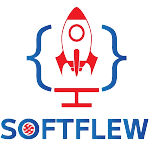How much of Python should I cover before taking the test? What should my general approach be? How do I prepare for such interviews? Read more about Python Interview Questions And Answers.
Python is a high-level programming language widely used for creating programs. If you want to become a software developer or a data analyst, then learning python becomes imperative.
This blog discusses some of the basic concepts related to fresher’s python interview questions and answers. These include syntax, types, variables, control structures, loops, functions, packages, etc.
Tips for cracking the interview
I would say that it’s not necessary to know all the details about Python in order to pass an interview. However, if you’re going to take the time to learn something new, why not go ahead and learn Python?
If you are just looking for a job as a programmer, then knowing how to program in any language will help you get hired. But if you are also interested in becoming a Data Scientist, then you’ll need to have knowledge of at least one other programming language besides Python.
If you are already familiar with Python, then I’d recommend reading through this tutorial on Python Interview Questions and Answers. It covers many different topics including lists, dictionaries, strings, numbers, operators, classes, exceptions, file handling, input/output, debugging, and more.
As far as your specific question about what to study first, I think it depends on which areas you feel most comfortable with. For example, if you are good at math, then maybe start there. Or if you like working with databases, then perhaps focus on that area.
In terms of preparing for these interviews, I think you can’t really prepare too much. You don’t want to spend too much time studying because you won’t be able to practice enough. Instead, I suggest focusing on practicing problems from the tutorials. Also, try to find sample code online that has similar problems to those you might see during an interview. This way, when you encounter them during an actual interview, you’ll be prepared.
10 Questions that you might want to know before going for the python interview
1) What exactly is Python? What are the advantages of employing Python?
Python is an object-oriented programming language featuring modules, threads, exceptions, and automated memory management. Pythons have the advantages of being simple and easy to use, portable, flexible, with built-in data structures, and open source.
2) What exactly is PEP 8?
PEP 8 is a coding standard, or collection of guidelines, for writing more understandable Python code.
3) What is the difference between pickling and unpickling?
The pickle module takes any Python object and transforms it into a string representation before dumping it into a file using the dump method. Unpickling is the process of extracting original Python objects from the stored string form.
4) How is Python interpreted?
Python is an interpreted programming language. The Python application is executed straight from the source code. It translates the programmer’s source code into an intermediate language, which is then translated into machine language and executed.
5) How does Python handle memory?
- Python’s own heap area manages memory. Python objects and data structures are all stored in their own heap. The programmer does not have access to this private heap, and the interpreter is in charge of it.
- The Python memory management allocates Python heap space for Python objects. The core API provides the programmer with access to various coding tools.
- Python also has a garbage collector, which recycles any unused memory, frees it, and makes it accessible to heap space.
6) What are the tools for finding flaws or doing static analysis?
PyChecker is a static analysis tool that discovers and warns about defects in Python source code based on their style and complexity. Pylint is another tool that checks to see if the module adheres to the coding standard.
7) What exactly are Python decorators?
A Python decorator is a special tweak we apply to the Python syntax to quickly edit functions.
8) What is the distinction between a list and a tuple?
The distinction between a list and a tuple is that the list is modifiable, but the tuple is not. Tuple can be hashed for e.g as a key for dictionaries.
9) Is it better to provide parameters by value or by reference?
In Python, everything is an object, and all variables are pointers to the objects. Because the reference values are determined by the functions, you cannot modify the value of the references.
However, if the object is malleable, you may alter it.
10) What exactly are Dict and List comprehensions?
They are syntactic constructs that make it easier to create a Dictionary or List from an existing iterable.
ange [0,1)
Contact us- 3 month python training
